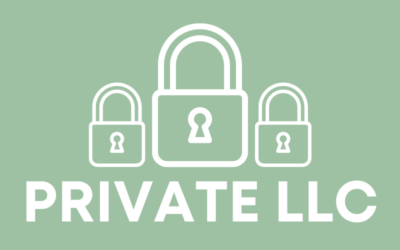A business entity can have its own business credit record and score. Lenders, suppliers, vendors, and even potential customers might check a company’s credit score (which is publicly available) before providing funding or doing business with the company.
Business credit stands as a sign of a company’s financial fitness and how responsible it is in handling its money. A business with a good credit history may benefit in several ways.
- Increased likelihood of getting funding
- Lower interest rates on loans
- Lower insurance premiums
- More favorable terms and payment arrangements with vendors and suppliers
- Better prices on goods and services
After starting a company, it’s essential that entrepreneurs begin to build business credit. Just as an individual’s personal credit history can affect their ability to secure loans or get a job, a company’s credit history can dramatically impact its ability to survive and grow.
Here are seven tips for building business credit to get you off on the right foot.
1. Form an LLC or Incorporate the Business
Registering a company as a formal business entity — e.g., Limited Liability Company (LLC), C Corporation, or Limited Liability Partnership (LLP) — enables it to establish its own credit profile. A registered business becomes recognized as a separate legal entity and is treated as a separate being from its owner(s).
Operating a business as a sole proprietorship provides no legal or financial separation between a company and its owner. So, an individual’s personal credit history will also apply to the business, impacting its ability to secure loans, enter into contracts, etc.
2. Request an EIN
An Employer Identification Number (EIN) is a federal tax ID number for a business entity. Multi-member LLCs, corporations, and any business with employees must have an EIN for tax purposes. Even when the IRS does not require a company to have an EIN, it’s beneficial because it identifies the business as its own entity separate from its. Companies typically need an EIN to open a business bank account, apply for licenses and permits, file business tax returns, and apply for business credit.
3. Open a Business Bank Account
It’s critical that a business has its own bank account and does not commingle finances with its owner’s personal accounts. Having a business banking relationship is important for obtaining funding, as lenders often ask for bank references on their credit applications. Keeping business funds separate from owners’ personal finances is an ongoing business compliance requirement for LLCs and corporations. Failure to keep personal and business monies independent can cause a company to fall out of good standing with the state.
4. Get a Business Credit Card
Another way to establish business credit is to apply for and regularly use a business credit card that reports to the major commercial credit reporting agencies. Paying credit card bills on time — or early — helps build a strong credit score.
5. Apply for a DUNS Number
Dun & Bradstreet, a business credit rating and reporting agency, issues 9-character business identifiers called DUNS (Data Universal Number System) numbers for free to companies. Business owners must request them from Dun & Bradstreet.
Other credit reporting agencies (such as Equifax and Experian) also have business ID numbers for tracking and reporting companies’ credit. Unlike DUNS numbers, those business identifiers are automatically issued — no special request is needed.
6. Establish Supplier Relationships
Choosing vendors and suppliers that report payment activity to a business credit reporting bureau, such as Dun & Bradstreet and Equifax Small Business, can help build business credit, too. Consider applying for net terms (also known as “tradelines”) with vendors that report payment activity to the credit agencies. For example, a net-30 term is an arrangement that gives a company 30 days to pay invoices for goods or services it has already received.
7. Pay Bills on Time
A company’s payment history with vendors and creditors that report to credit agencies impacts credit scores significantly. A business must pay its invoices on time — the earlier, the better — to earn the highest credit score possible.
How to Track Your Business Credit
Business owners should regularly monitor their business credit files to know where their company stands AND detect any mistakes on their credit reports.
The various agencies may collect different information, so it’s essential to check all their reports for accuracy. If any errors exist, business owners can file a dispute to explain the discrepancies and request corrections. Checking business credit reports several times a year can also help identify fraudulent activity in a timely manner.
The longer a business’s credit history shows a track record of ample activity and responsibility, the more likely credit bureaus will rate them favorably. So, it’s beneficial for companies to start building and tracking their business credit as soon as possible to put themselves in the best possible position for future success.





